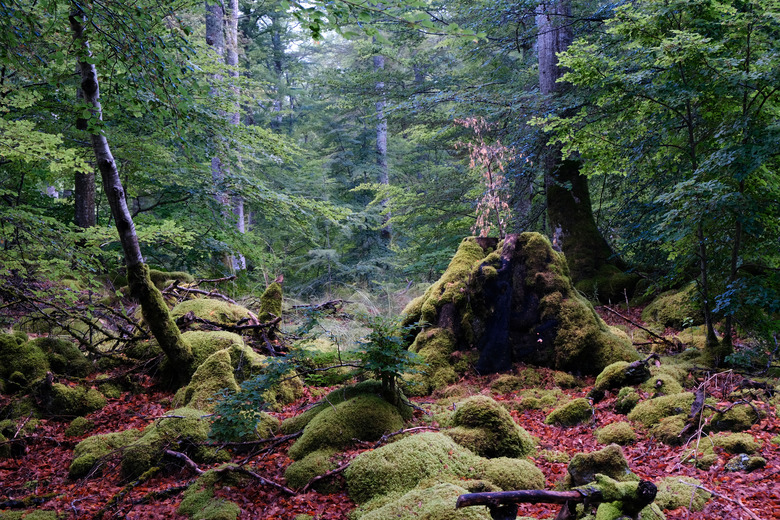Here's How New Zealand's "Vampire Tree" Impacts Its Environment
You can find all kinds of unique and fascinating things on a trip to New Zealand: endangered alpine parrots that like to steal people's keys, the world's smallest (little blue) penguins, extreme sports enthusiasts – and, as it turns out, a vampire.
The vampire in question is actually a tree – and more specifically, it's a tree stump. It sits on New Zealand's northern island, a short, leafless stump that might look dead at first glance. But, according to a study published in iScience30146-4?_returnURL=https%3A%2F%2Flinkinghub.elsevier.com%2Fretrieve%2Fpii%2FS2589004219301464%3Fshowall%3Dtrue) on July 25, this vampire tree is far from dead.
How It's Alive
How It's Alive
Let's rewind: This stump was once a full-grown kauri tree, which may have reached 165 feet in height. Now, it's much less – or so it appears above the ground's surface. Study authors called this kauri stump part of a forest "superorganism," whose intertwined roots share resources across a group of trees that could number into the dozens or hundreds, according to LiveScience.
The stump has grafted its roots onto the roots of its neighbors, and now it feeds (at night, no less) on nutrients and water collected by those other trees.
Study co-author and Auckland University of Technology associate professor Sebastian Leuzinger said in a news release that he and his colleague Martin Bader encountered the stump while hiking in West Auckland.
"It was odd, because even though the stump didn't have any foliage, it was alive," Leuzinger said in the release.
He and Bader took it upon themselves to figure out how the seemingly dead stump was, in reality, sustaining life. They measured water flow in the stump and its surrounding trees, finding a strong negative correlation between water movement in the tree stump and in the other trees. According to the release, this negative correlation indicated that the roots of the stump and its neighboring trees were grafted together.
"This is different from how normal trees operate, where the water flow is driven by the water potential of the atmosphere," Leuzinger said in his statement. "In this case, the stump has to follow what the rest of the trees do, because since it lacks transpiring leaves, it escapes the atmospheric pull."
Why It's Alive
Why It's Alive
So that tells us how this tree stump has stayed alive far past its prime. And the advantages for the stump speak for themselves: It would have died without grafting onto the roots of nearby trees, since it doesn't have any of its own leaves.
But that still leaves one question, as asked by Leuzinger in his statement: "But why would the green trees keep their grandpa tree alive on the forest floor while it doesn't seem to provide anything for its host trees?"
He suggested that the trees may have grafted their roots together before this particular one lost its leaves and became a stump. Those root grafts would expand the root system of that community of trees, allowing them more access to water and nutrients and increased stability for trees on steep forest slopes. This might help a grafted family of trees survive in a drought, for example, where some might have more access to water than others. On the other hand, the interconnected roots could also conduct rapid disease spread.
"This has far-reaching consequences for our perception of trees," Leuzinger said in the release. "Possibly we are not really dealing with trees as individuals, but with the forest as a superorganism."
Cite This Article
MLA
Swanston, Brenna. "Here's How New Zealand's "Vampire Tree" Impacts Its Environment" sciencing.com, https://www.sciencing.com/heres-how-new-zealands-vampire-tree-impacts-its-environment-13720458/. 1 August 2019.
APA
Swanston, Brenna. (2019, August 1). Here's How New Zealand's "Vampire Tree" Impacts Its Environment. sciencing.com. Retrieved from https://www.sciencing.com/heres-how-new-zealands-vampire-tree-impacts-its-environment-13720458/
Chicago
Swanston, Brenna. Here's How New Zealand's "Vampire Tree" Impacts Its Environment last modified August 30, 2022. https://www.sciencing.com/heres-how-new-zealands-vampire-tree-impacts-its-environment-13720458/
